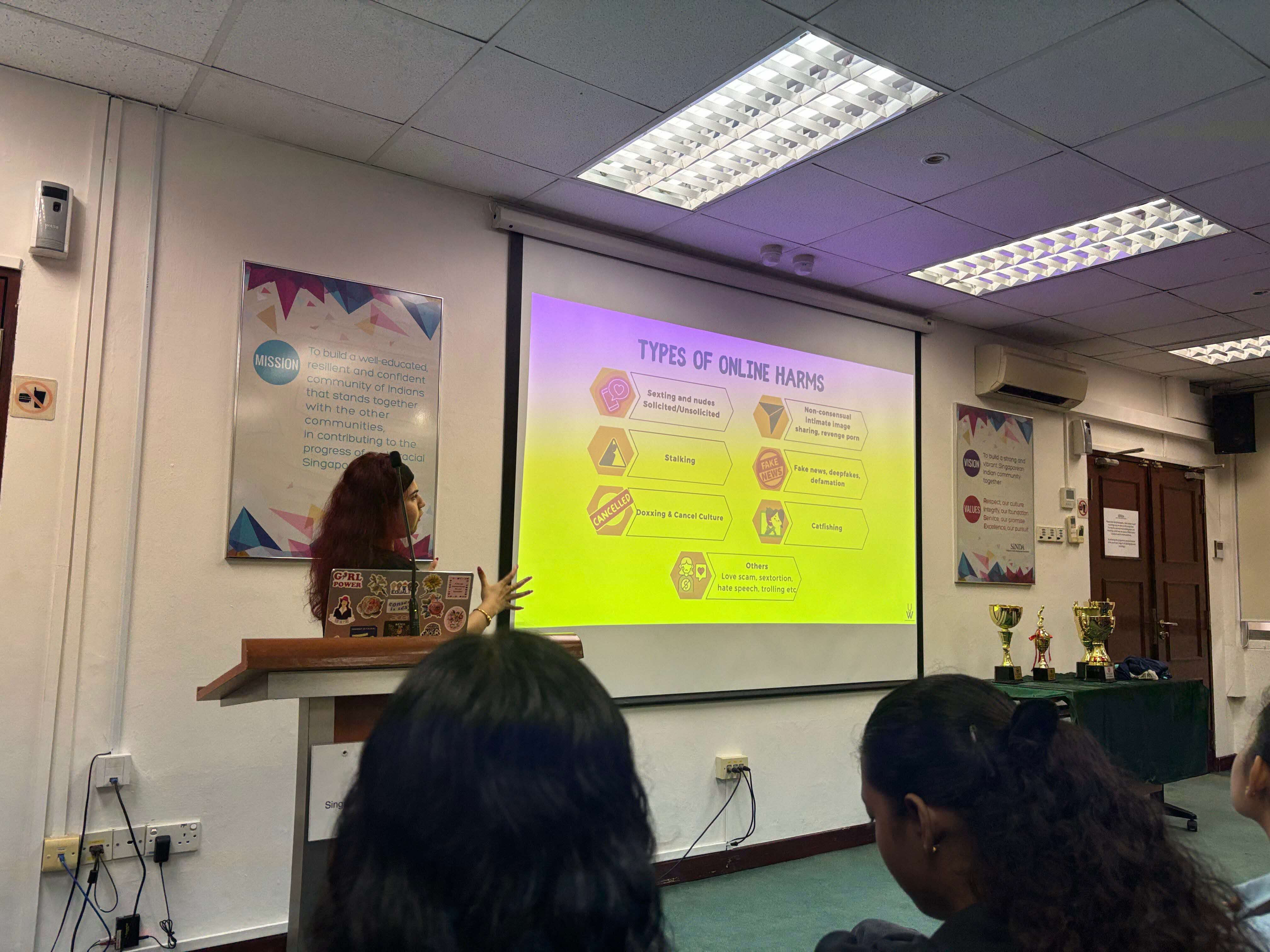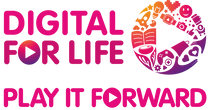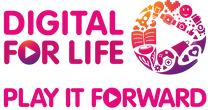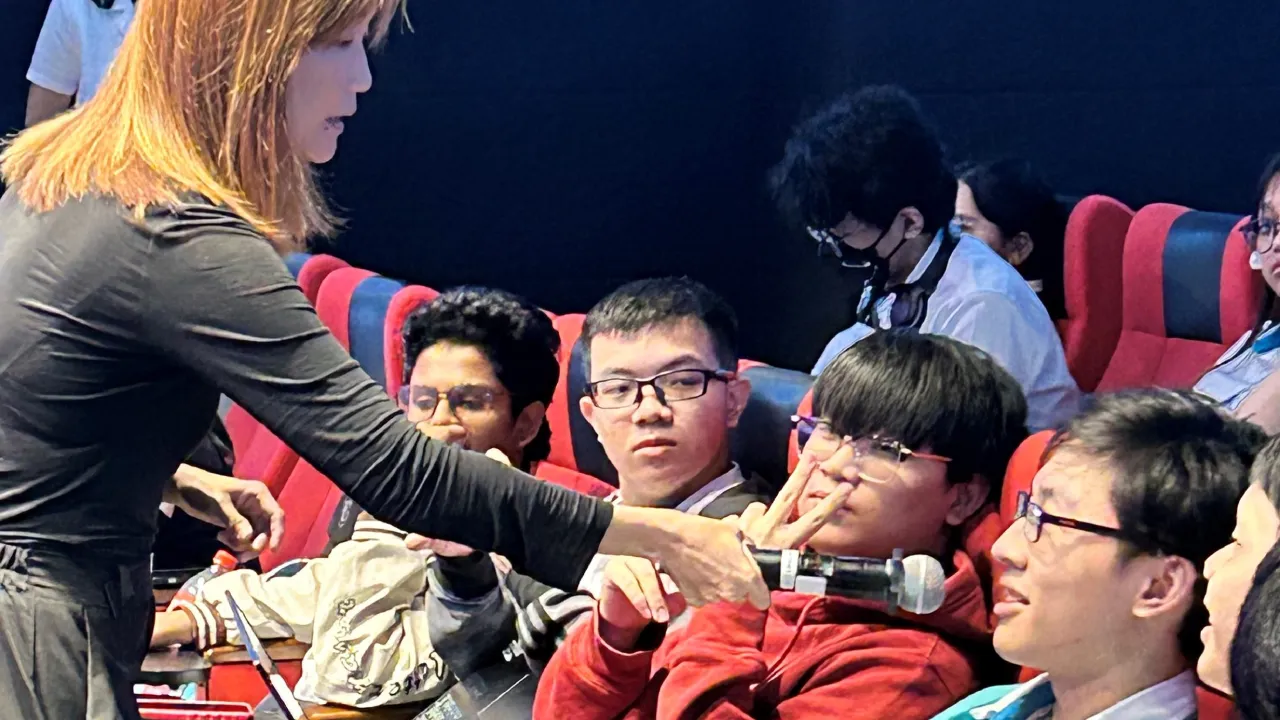In today’s fast-paced and readily accessible digital world, being online means you constantly have access to a multitude of connections. At any given moment, you may be watching and posting Instagram stories, sending texts in group chats with friends, or tuning in to a stranger’s Twitch livestream. It’s easier than ever to interact with anyone online, be it chatting with strangers while playing video games, or hopping onto a Discord call with your school friends. It’s chaotic and overwhelming, and it is hard to tell what kind of values and behaviours from external influences are seeping in along the way.
Amidst this digital noise, harmful attitudes can easily slip through unnoticed — a text joking about a female classmate’s appearance, a viral video of a content creator making obscene gestures behind women, or sexist slurs uttered when gaming. These moments might seem trivial and harmless, but they add up. For impressionable young boys especially, these harmful behaviours can be internalised early on and mistaken as normal or acceptable parts of online interaction.
United Women Singapore (UWS) wants to change that. Their new programme in their ‘Boys Empowered’ series, ‘Boys Empowered with Cyber Skills’, aims to help boys aged 12 to 25 navigate the digital world more responsibly, foster digital wellness, and become allies for gender equality both online and offline.
Why Boys?
The anonymity and freedom of the Internet have enabled the thriving of echo chambers championing sexist ideas and behaviours. Therefore, boys face a unique set of challenges in online spaces, especially in male-dominated environments like gaming communities and online forums.
Here, boys might find themselves at risk of being a part of the "manosphere" — a network of websites, forums, or social media spaces where regressive gender ideals thrive)
As explained by Anupama Kannan, Senior Manager of Programmes & Outreach at UWS, “These spaces often promote harmful ideals, such as aggression, dominance, and the objectification of women, while discouraging emotional vulnerability and empathy.”
The dangers posed by such communities impact not only women but also men, who face their own set of risks. One participant shared that a friend of his had been a target of cyberbullying just because his classmates did not like his behaviour.
Anupama explained, “The misconception that men do not need help navigating mental health issues or online safety reinforces toxic masculinity and discourages open conversations about vulnerability and self-care. Such misconceptions or stereotypes limit how men express themselves and contribute to unhealthy, exclusionary online cultures.”
The consequences are not just limited to the online space. Boys who internalise these hypermasculine norms might end up struggling with emotional expression, form unhealthy relationships, and perpetuate gender-based violence both online and offline.
Recognising these risks, UWS saw an opportunity to intervene early to prevent young boys from suffering such consequences.
A Safe Space for Learning
At the heart of the programme was a safe judgment-free space that functioned as a break from the online world that often pressures boys to stay silent or act tough. This workshop gave them a chance to speak openly about their digital lives.

A workshop facilitator led a workshop on online harms for youths, using real-world examples that they could relate to.
Participants shared personal stories of discomfort, confusion, and fear, with one participant sharing that he had “faced threats from other users or online bullying where people were mean”. These conversations helped boys realise they weren’t alone in their struggles.
The programme also included role-playing exercises grounded in real-life online scenarios, allowing the boys to explore healthy responses to peer pressure, inappropriate content, and boundary-setting. One participant reflected, "I learnt to never trust easily people online, as it can be dangerous to trust strangers online; they can take your information."
Tailored Content for All Ages
The programme targeted boys as young as 12 — a critical age when they begin asking themselves who they are, figuring how they fit into the world around them, and are increasingly exposed to a wide range of online content. At this stage, they’re curious, eager to connect, and often unaware of the subtle, and sometimes harmful, messages they’re absorbing.
UWS aimed to introduce concepts such as digital citizenship, empathy, and online safety to shape how boys interact online. “By instilling these values early, we can guide them toward healthier online interactions and empower them to make informed decisions as they continue to grow and explore the digital world, while also educating those around them,” a spokesperson for UWS explained.
Understanding that boys between 12 and 25 are at very different stages of growth and their understanding of the digital landscape, the programme’s content was carefully tailored to meet their unique needs.
For ages 12 to 15, the programme focused on foundational topics such as identifying cyberbullying, recognising inappropriate content, and learning to set and respect personal boundaries. Sessions incorporated role-playing and peer-sharing activities, using familiar examples from social media, gaming, and group chats to make these concepts relatable and engaging.
Teens aged 16 to 19 explored more advanced topics, such as managing their digital footprint, understanding online consent, navigating peer pressure, and recognising toxic masculinity in relationships. The sessions utilised relevant examples including online dating, content creation, and managing public profiles on social media platforms such as Instagram and TikTok. The workshop also addressed the lasting impact of digital actions and the risks of oversharing.

Facilitators spoke about the different types of online harms and the dangers of oversharing on social media.
For young adults aged 20 to 25, the focus was geared towards addressing the challenges of adulthood in the digital space. The programme covered maintaining digital professionalism, balancing personal identity with career goals, and understanding how online behaviour can affect workplace reputation. Key topics included safeguarding privacy, managing professional communications, and the influence of social media on mental health. The programme also emphasised the importance of fostering positive and supportive online communities, helping them develop healthy and responsible digital habits for the future.
A participant from the workshop reflected, “I knew most of the things mentioned in the workshop, but now I know I’m not too crazy when I tell my friends things are red flags.”
Regardless of age group, the core values of the workshop remained the same: empathy, respect, responsibility, and self-awareness.
Fostering Positive Online Habits
To help turn insights from the workshops into actionable change, participants were encouraged to set personal goals when online — such as calling out sexist jokes, standing up to online bullying, or pledging to foster more respectful digital interactions. A participant shared that he “better learnt how to deal with negative comments when playing online games”, whilst another said that he “learnt how filter bubbles work and how to encourage a healthier digital footprint”. UWS also conducted follow-up discussions and check-ins with educators, which helped to enhance their online experience beyond the workshop.
The support from the Digital for Life (DfL) Fund played a vital role in bringing the programme to life, helping UWS to craft engaging and relevant content for the differing age groups.
Beyond shaping the curriculum, the funding also enabled the creation of engaging take-home materials. These resources served as reminders of what participants learnt during the workshops and offered practical guidance for applying those lessons in everyday online interactions, shaping how they think, act, and engage in the digital world long after the workshops end.
Anupama said: “Our objective as an organisation is to create a new generation of male leaders who can influence the community towards the alleviation of gender-based violence, both online and offline.”
Join the Digital for Life Movement and Contribute to Building a Digitally Inclusive Society
The ‘Boys Empowered with Cyber Skills’ programme by United Women Singapore seeks to promote healthy online behaviours, digital skills, and lifelong insights on using social media wisely to foster digital wellness in the cyber youth community.
Visit https://uws.org.sg/be-a-volunteer/ to learn more about how you can help United Women Singapore foster digital wellness in the cyber youth community.
Join the Digital for Life movement by starting a project and find out how the Digital for Life Fund can support you at https://www.digitalforlife.gov.sg/Contribute/Start-a-Project.













